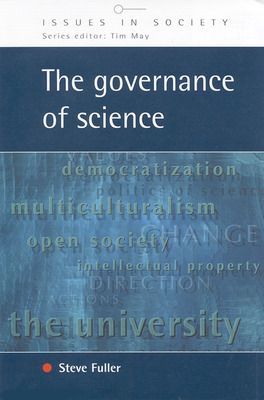Governance of Science
- Access the eBook anytime, anywhere: online or offline
- Create notes, flashcards and make annotations while you study
- Full searchable content: quickly find the answers you are looking for
Introduction
/f002Part One: The political and material conditions of scientific inquiry
Science as the open society and its ideological deformations
The role of scale in the scope of scientific governance
/f002Part Two: The university as a site for the governance of science
The historical interdependence of the university and knowledge production
Multiculturalism's challenge to academic integrity, or a tale of two churches
The university as capitalism's final frontier, or the fading hope for enlightenment in a complex world
/f002Part Three: The secularization of science and a new deal for science policy
Sociology as both sanctifier and secularizer of science
The road not taken
revisiting the original new deal
Elements for a new constitution of science
References
Index.
- What does social and political theory have to say about the role of science in society?
- Do scientists and other professional enquirers have an unlimited 'right to be wrong'?
- What are the implications of capitalism and multiculturalism for the future of the university?

